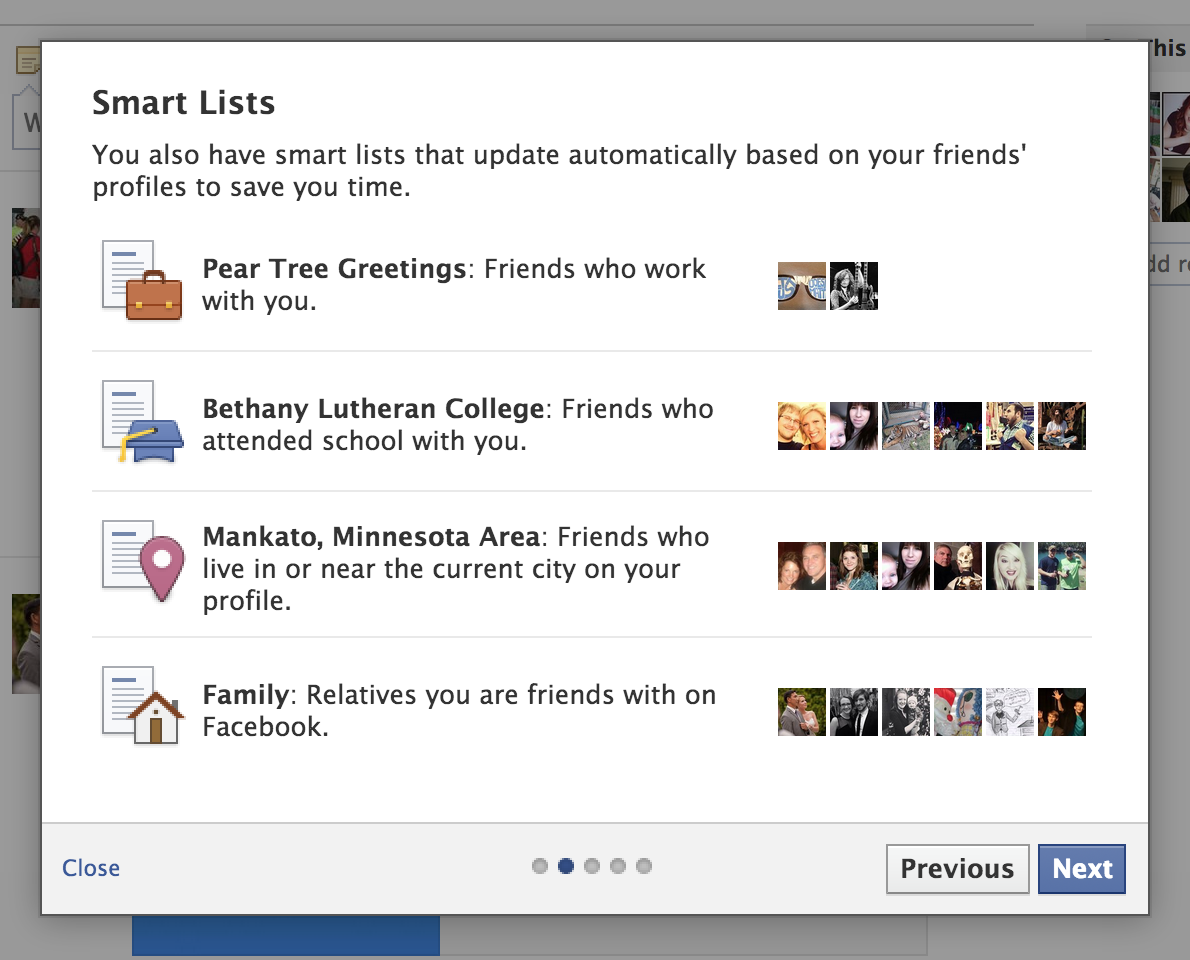My Only Suggestion For Facebook Paper
First of all, great job to Mike Matas and his team. This new Facebook experience is a joy to use.
I do have one gripe with it, however, and I only bring it up because I feel that the solution is obvious and a missed opportunity. Allow me to introduce Facebook lists:
Facebook lists are powerful, and here’s why:
- When you create a list, you have the ability to view it as a Newsfeed containing posts exclusively by the people you chose to be in that list.
- You can save lists to your favorites section for easy access.
- You can choose to share a post with only the people in a certain list.
- Finally, Facebook already dynamically generates lists for you (called Smart Lists) based on employment, location, school, and family. With those, most of the work is done for you already.
The one problem with Facebook lists? It’s a power user feature that normal people do not use. I believe it is for this reason that lists weren’t even included in Facebook Paper. And here’s where Facebook Paper comes in.
Facebook Paper is largely a re-imagining of the current Facebook experience, but does include something new: Sections.
If you swipe to the right on the featured post (“Movie night!” depicted above), it takes you to new Newsfeeds (such as Tech, Pop Life, Score, Headlines) containing curated news content. You don’t have control over what appears in these sections, these were pre-decided by Facebook through agreements they’ve made with certain content providers. The one problem with Facebook Sections? I don’t need a new source of news, and I don’t find this source to be as easily digestible as others (such as Twitter).
Do you see where I’m going with this? Facebook Paper Sections should be Facebook lists. And here are the reasons I find it particularly obvious:
- When swiping to the right of your main Newsfeed, it makes sense that you would find alternate Newsfeeds. This already exists with Facebook lists.
- Typically, the problem with implementing something like this is that users would have to go through the process of creating these alternate lists. This has already been taken care of with Smart Lists. They have a set of default lists, dynamically generated by Facebook.
- Facebook Paper is an experiment, giving them room to play with new ways of letting users create and manage lists.
Not a single service has figured out how to get lists to work. Google came closest with Circles on Google+, but lists on Facebook and Twitter are both duds thus far. Facebook Paper gives Facebook an opportunity to make lists work by easing users into using them first, then introducing the more useful and powerful features as needed.
Bonus read: Design Details: Paper by Facebook by Brian Lovin
